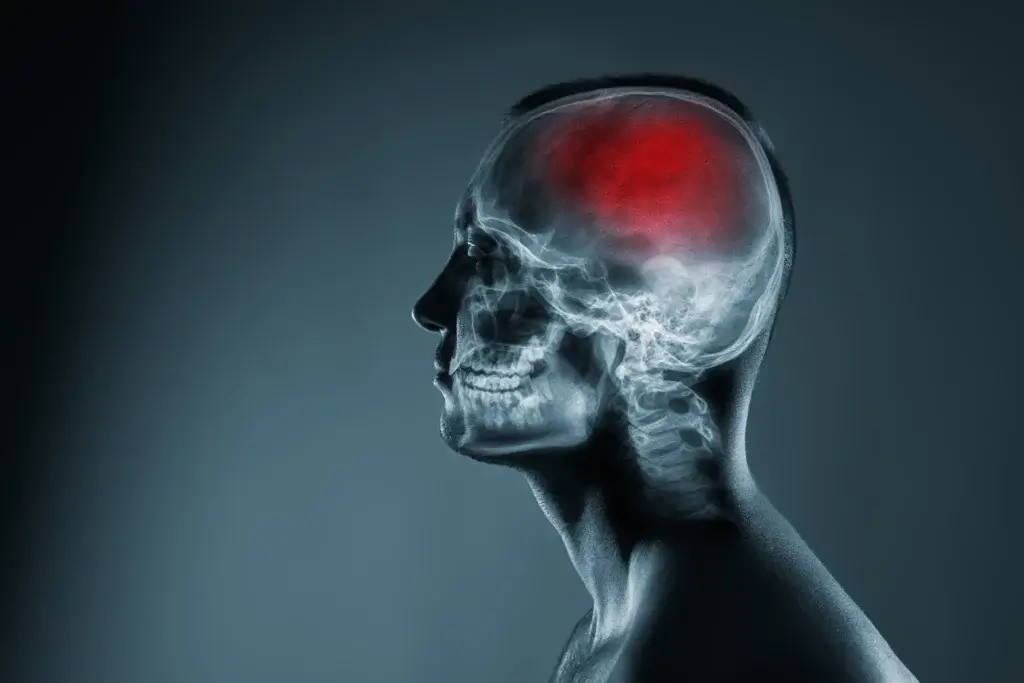Seeking help for methamphetamine addiction, such as a meth rehab, is commendable. Methamphetamine is an incredibly addictive and hazardous substance that can have devastating effects on someone’s health. For this reason, rehabilitation within a treatment program is essential for people suffering from meth addiction. Rehabilitation plans are able to give the support, supervision, and specialization that an individual needs to combat their addiction and attain long-term recovery.
Continue reading to learn more about methamphetamine, the many negative effects of this addiction, and how to get help for yourself or a loved one.
Due to the highly addictive nature of methamphetamine and the dangers associated with its use, meth rehab is necessary for individuals battling this addiction to recover successfully.
What is Methamphetamine?
Methamphetamine is an incredibly addictive stimulant that is chemically akin to amphetamine. Labeled as a Schedule II controlled substance, it has a high potential for misuse. Methamphetamine is often referred to as “meth” or “crystal meth” and is commonly encountered in the form of a white, sour-tasting powder that can be dissolved in water or alcohol. It also is available in the form of a pill or a sparkling substance that is reminiscent of glass pieces or glistening, bluish-white stones.
Methamphetamine is an extremely habit-forming stimulant that is similar to amphetamine in its chemical composition. Classified as a Schedule II controlled drug, the possibility of abusing it is quite high. It is usually called “meth” or “crystal meth” and usually is seen in the form of a white, acidic-tasting powder that can be blended in water or liquor. Additionally, it is available in pill or crystal form, which resembles small glass pieces or twinkling, light blue rocks.

Signs of Meth Abuse and Addiction
Recognizing the signs of methamphetamine abuse and addiction can be key in helping someone. These indications can come in the form of physical, behavioral, and psychological signs. Examples of the most frequent warning signs of meth consumption and addiction are:
Behavioral Signs
- Sociability
- Agitation
- Aggression
- Poor hygiene
- Neglecting responsibilities and obligations
- Decline in performance at work or school
- Loss of interest in things once enjoyed
Physical Signs
- Increased energy
- Insomnia
- Decreased appetite
- Weight loss
- Rapid heartbeat
- Elevated body temperature
- Dilated pupils
- Itching
- Skin sores
- Tooth decay
Psychological Signs
- Anxiety
- Mood swings
- Restlessness
- Depression
- Paranoia
- Hallucinations
- Irritability
- Suicidal ideation
Dangers of Long-Term Meth Addiction
When left untreated, ongoing methamphetamine addiction can lead to a variety of harmful and potentially life-threatening effects. The damage of continued meth addiction includes the following:
Brain Damage
One of the most serious risks of continual meth usage is the danger of harm to the brain and other parts of the body. Constant methamphetamine use can change the way the brain looks and works, particularly in areas linked to emotions, memory, and motion. This can lead to a collection of cognitive and behavioral issues, such as loss of memory, trouble paying attention and concentrating, and a greater chance of having a stroke or seizure.

Dental Issues
Meth addiction can have a considerable and infamous physical consequence on one’s dental health, often referred to as “meth mouth.” This is a product of several components, such as a reduction in saliva production, improper dental hygiene, and the propensity to grind teeth when under the influence of the drug. As a result, one can suffer from extreme tooth decay, gum illness, and tooth loss.
Cardiovascular Issues
Methamphetamine addiction has the potential to cause damage to the heart and other areas of the cardiovascular system. This is because the drug is a stimulant, which results in an increased heart rate and blood pressure, thereby putting too much strain on the heart and raising the risk of heart attack, stroke, and other cardiovascular issues.
Meth Addiction Treatment Options in Los Angeles
There are various forms of rehabilitation plans that can be utilized to manage methamphetamine addiction. Generally, these regimens involve a mixture of different techniques and can be designed to suit the particular requirements of the patient.
Meth Detox
Detoxification is the process by which the body expels a drug. Detoxing from meth can be difficult as it is a potent stimulant that influences the brain and body in many ways. Medical detoxification is usually advised for people who are hooked on meth, as it gives the chance for close supervision and control of withdrawal symptoms. During medical detox, patients may be provided with medications to control anxiety or sleeplessness and to reduce the yearning for the substance. Medications such as anti-depressants are used to treat depression and uneasiness related to withdrawal from meth.
Inpatient Rehab
Inpatient rehabilitation programs are usually the most comprehensive type of treatment. Patients stay at the rehabilitation center for a certain duration, usually between 30 and 90 days, while they have 24/7 supervision and care. These inpatient rehab programs often integrate several therapies, including individual guidance, group therapies, family counseling, and medical administration and other medical attention if necessary.
Outpatient Rehab
In comparison to inpatient programs, outpatient rehab programs are less rigorous and involve the participant visiting the rehab center several times each week for counseling sessions and other forms of treatment. These programs can be an appropriate choice for individuals who have significant duties such as work or school that they cannot ignore while undergoing treatment.
Aftercare and Sober Living Programs
Following the completion of a residential or non-residential rehabilitation program, aftercare and sober living homes are established in order to provide assistance and organization to those in the process of recovery. These sober living homes supply a secure and drug-free atmosphere for those recovering and aftercare plans may include individual or group therapy, support systems, and other services to help those in recovery sustain their progress.
Support Groups
Support groups may be a beneficial component of the rehabilitation process for people overcoming their methamphetamine dependency. These groups usually consist of individuals recuperating from addiction who can offer each other comfort and motivation. 12-step programs like Narcotics Anonymous (NA) and Crystal Meth Anonymous (CMA) are one of the most usual types of support groups.

Therapies Used in Meth Rehab
Different therapies are used to treat methamphetamine addiction and can be tailored to a person’s individual needs. The following therapies are designed to provide guidance in developing healthy coping skills and problem-solving strategies to help prevent future methamphetamine addiction.
Cognitive-Behavioral Therapy (CBT)
CBT has been found to be a powerful tool in helping individuals become aware of their addiction-related thoughts, feelings, and behaviors, as well as in developing the skills and strategies necessary to make meaningful changes. By understanding the underlying causes of their addiction, individuals are better able to break free from it and develop healthier habits. Ultimately, CBT can be an invaluable resource in helping individuals overcome their addiction and lead more fulfilling lives.
Motivational Interviewing (MI)
Motivational interviewing (MI) is an evidence-based approach that promotes change within individuals by creating an environment of collaboration and respect. It is client-centered, meaning that it focuses on the individual’s own goals and values, and facilitates discussions that build commitment and motivation to achieve them. MI has proven to be an effective tool in helping individuals make positive changes in their lives and has been used for many years in the fields of mental health, addictions, education, and more.
Contingency Management (CM)
Contingency Management (CM) is a powerful behavioral treatment that has been proven to be effective in helping patients reduce their substance abuse behaviors. It works by providing incentives, such as vouchers or small cash rewards, for positive behaviors like drug-negative urine tests. CM is considered an evidence-based practice, meaning it has been extensively researched and studied, and its effects have been consistently demonstrated. CM is especially beneficial when used as part of a comprehensive treatment plan that also includes psychotherapy and other support services.
Medication-Assisted Treatment (MAT)
Medication-assisted treatment (MAT) is an effective tool in helping individuals with substance abuse disorders. MAT involves the use of medications, such as methadone or buprenorphine, that are combined with counseling and other therapies to enable individuals to manage withdrawal symptoms and reduce cravings. Research suggests that MAT is a safe and cost-effective approach to helping individuals cope with their addiction, leading to a better quality of life.
Meth Rehab in Los Angeles, California
If you or someone close to you is struggling with a meth addiction, it’s important to get the help you need right away. At Launch Centers, we are devoted to supporting people fighting against substance abuse by helping them to start anew and attain their highest potential. Our experts can help you on your journey to recovery and achieving your objectives with our exclusive program that combines career and educational elements with health care and comprehensive therapy so that you can have a successful recovery and a healthy, sober life.
If you require assistance and would like to find out more about the various services and treatments that we have to offer, get in touch with one of our experts at Launch Centers right away. We will be with you every step of the way. Contact us today.





